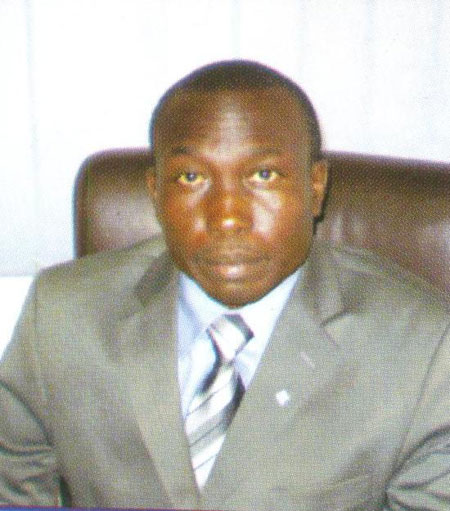
The lower court in Banjul yesterday denied bail to Edward Graham, former Managing Director of Social Security and Housing Finance Corporation (SSHFC).
This ruling was delivered by Principal Magistrate Emmanuel Nkea, on a bail application filed by his defence counsel, Amie Bensouda.
The court further ordered him to be remanded in prison custody pending the completion of the investigation into the matter, and pending the hearing and determination of this case based on the charges before the court.
The conditions further stipulated that bail condition shall be reviewed, if the state eventually presses fresh charges, and the state was given 10 days from yesterday to expedite and conclude investigation into the matter.
It added that the case would be heard on a day-to-day basis, and the accused should be made to see a consultant ophthalmologist at the RVTH forthwith.
Magistrate Nkea in delivering his ruling told the court that the accused person was first arraigned before this court on a three-count charge of economic crime.
He added that the accused pleaded not guilty to all the counts, which plea was immediately followed by a bail application on his behalf by his counsel.
"I have listened very carefully to the submissions of both sides, and I have also perused through the affidavits in support and opposition, as well as read through the authorities relied on by both the prosecution and the defence in support of their various positions," he added.
"I agreed with both sides that the issue of pre-trial bail lies entirely within the discretion of the court, and that the court should exercise such discretion judicially and judiciously," Magistrate Nkea told the court.
He says all the authorities cited by both sides are merely persuasive, and not strictly binding on this court and that, in view of this, he shall seek guidance from the local superior courts.
Magistrate Nkea further pointed out that the factors to be considered before granting pre-trial bail are the nature of the offence, the severity of the punishment prescribed for the offence, the quality of evidence available, the likelihood of the accused interfering with the investigations, the likelihood of the accused repeating the offence, the criminal record of the accused, the rate of occurrence of the offence and the likelihood of the accused appearing to stand trial.
He cited the Supreme Court authority of Mauritius which cautioned that in a judicial evaluation of the above factors, the court must always bear in mind that its purpose is to maximise personal liberty, but immediately cautioned that if one more of the factors were found to have been established then it would be in the interest of justice to continue detention.
He added that the accused had a clean criminal record, and was not likely to repeat the commission of this offence if admitted to bail.
"The bone of contention in this application is whether giving the peculiar health condition of the accused he should be admitted to bail," he stated.
"As I held on 31st December 2010, there is no doubt that the accused has a medical condition for which he intends to travel to the UK for medical attention.
"Does the referral decision for the accused to undergo treatment in the UK constitute a special circumstance in favour of bail in this instant case?
"The accused would wish to have this done in the UK, and has already had an appointment to this end with central Manchester University hospital," he said.
"There is no medical evidence that this particular type of surgery cannot be performed in The Gambia. I have not also seen any medical evidence presenting the situation as an emergency. The desire to have this surgery carried out only in the UK is one that can only be enjoyed by a free man, which the accused at this moment is not.
"As the erstwhile Director of SSHFC, the accused was an influential person and it seems reasonable for me to believe that if released on bail at this material time he might directly or indirectly interfere with the investigation process and prosecution witnesses," he noted.
"I have looked at the Economic Crime (Specific Offences) Decree 1994 and section 6 thereof imposes a minimum of 3 years and a maximum of 10 years imprisonment, where the accused is found guilty. This in my view is a severe punishment.
"I have been also referred to section 7 of the Economic Crime (Specified Offences) Decree which allows for a trial in absentia and section 8 (2) which provides for the forfeiture of the accused asserts," he added.
"In my view these sections are meant to serve as contingent measures where the accused absconds from appearing in court," he said.
He added that in criminal trials the ideal thing is for the accused person to be physically present, and have his day in court, and not for the court to resort to secondary measures and procedures to meet the ends of justice.
The case was subsequently adjourned until 17th January 2011.



